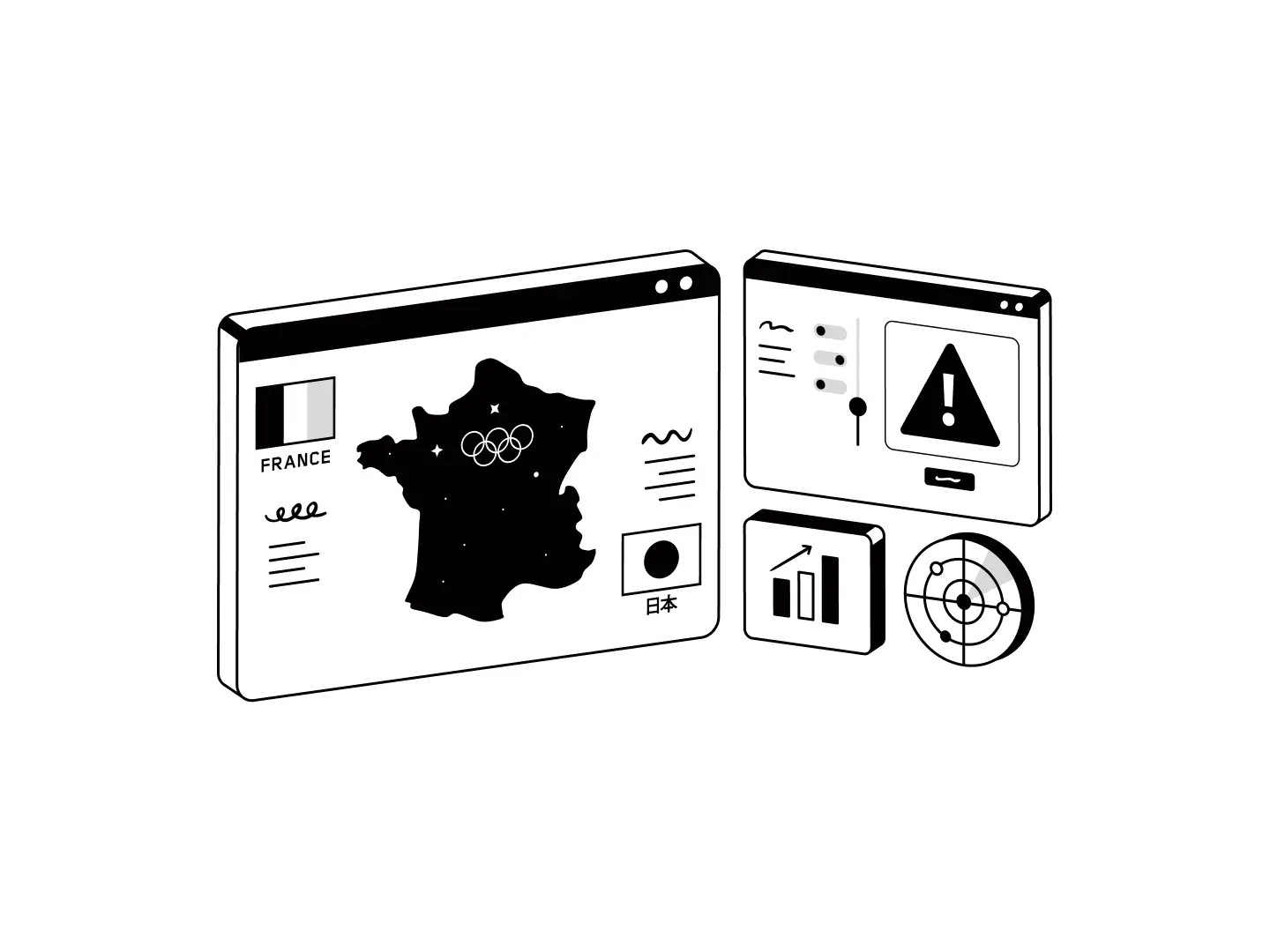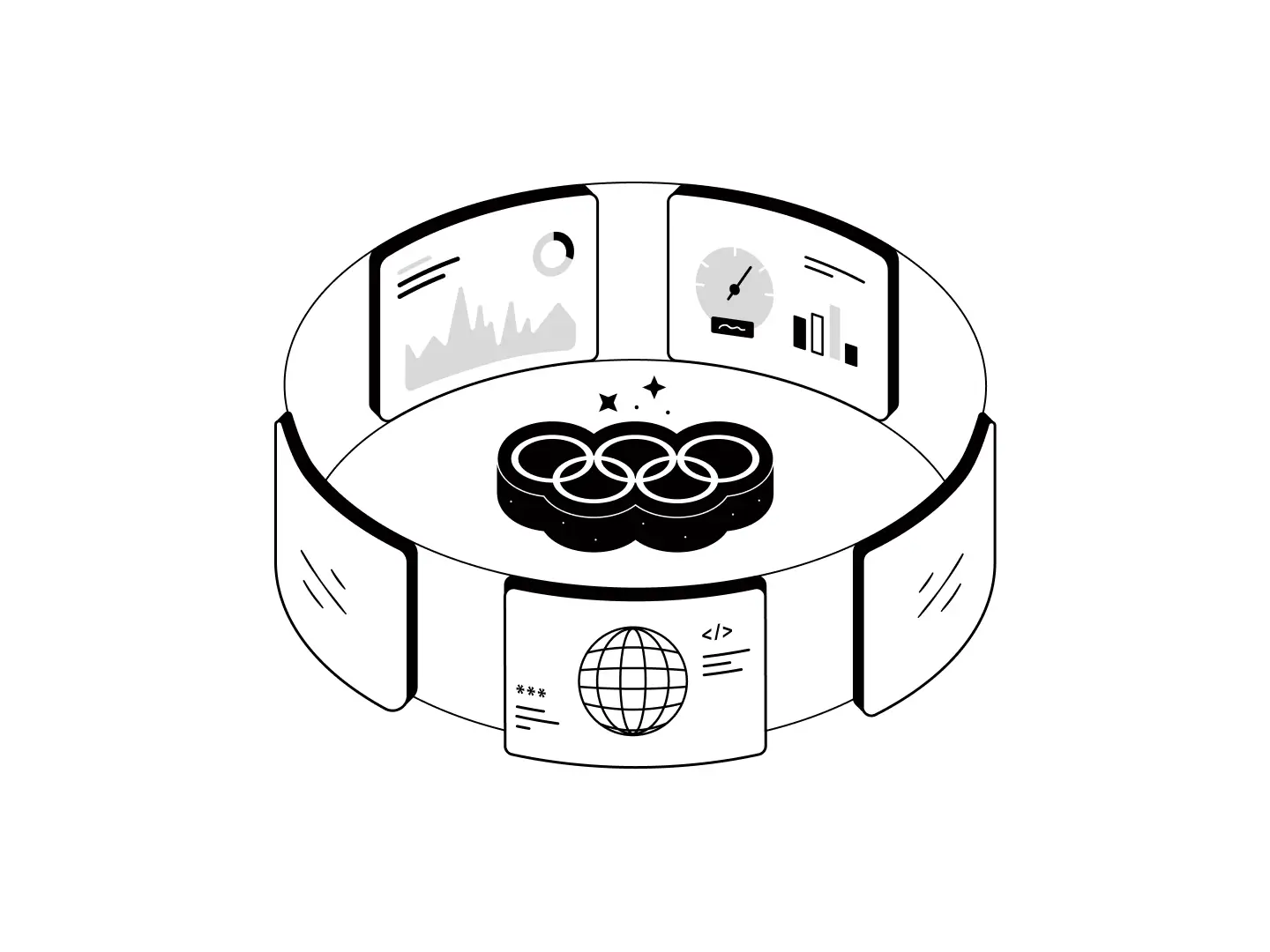Cybercriminals from around the globe are gearing up to exploit the event's vast infrastructure and global audience. With the stakes higher than ever, how will organizers ensure the safety of the games and protect against cyber threats? Let us dive into the hidden side of the Olympics.
With a budget of 7 billion euros, an estimated television audience of 4 billion viewers, 12 million spectators on-site, 30,000 volunteers, 10,000 athletes from 206 countries, spread across 40 venues, the Paris 2024 Olympic Games represent the most prestigious sporting event for France and the world. This scale inevitably attracts a large number of cybercriminals, making cybersecurity a crucial issue.
Cybersecurity Risks at the 2024 Olympics
Phishing and social engineering attacks pose a significant risk to the 2024 Olympics, with the potential to steal sensitive data, disrupt operations, and tarnish the reputation of the Games. Cybercriminals often use phishing emails and social engineering tactics to trick individuals into divulging sensitive information. With millions of participants, staff, and volunteers involved, the Olympics present a vast landscape for phishing attacks to flourish.
Ransomware attacks are another major threat. These attacks can cripple IT systems by encrypting critical data and demanding a ransom for its release. Such an attack could disrupt event scheduling, ticketing systems, or athlete data management.
Distributed Denial of Service (DDoS) attacks also pose a serious problem. These attacks can cripple essential online services, making them completely inaccessible to millions of users. This could disrupt critical operations like live streaming, ticket sales, and real-time results reporting, potentially tarnishing the Olympic experience for fans worldwide.
Data breaches are another major risk. With the massive collection of personal and financial data, the Olympic Games are a lucrative target for hackers looking to steal sensitive information.
The increasing use of Internet of Things (IoT) devices, such as security cameras and smart stadiums, introduces new vulnerabilities that can be exploited if not properly secured. Insider threats are also a concern, as employees or contractors with access to critical systems may pose a threat, either intentionally or unintentionally, by mishandling data or allowing unauthorized access.
Finally, supply chain attacks, where third-party vendors or service providers are compromised, can be an indirect way for attackers to infiltrate Olympic systems.

Measures to Ensure Cybersecurity
To counter these risks, the French government and the Organizing Committee for the Olympic Games (COJO) have implemented a multifaceted cybersecurity strategy. This strategy begins with a comprehensive risk assessment to identify potential vulnerabilities and threats. These assessments are crucial for devising targeted strategies to mitigate identified risks effectively.
One of the critical components of the strategy is the collaboration between ANSSI, France's cybersecurity agency, and Japan's NISC. This partnership enhances cybersecurity frameworks through shared experiences and improved dialogue, leveraging insights from previous major sporting events.
Enhanced cyber hygiene training programs are also crucial. These programs educate all staff and volunteers on recognizing and avoiding phishing attempts, using strong passwords, and practicing good cyber hygiene. Awareness-raising events and training courses are organized to combat phishing, spam, and online scams, which are the initial means of compromise for most cyberattacks.
The establishment of a Security Operations Center (SOC) is another key measure. The SOC, with a budget of 17 million euros, continuously monitors all Olympic digital ecosystems. It uses advanced AI-based tools to detect suspicious or malicious activity in real-time and orchestrate incident responses. This proactive approach ensures that threats are identified and mitigated promptly.
Protecting the IT infrastructure involves deploying advanced network security solutions, including intrusion detection systems, firewalls, and real-time monitoring tools. These measures safeguard systems that handle everything from scoring and timing to broadcasting and ticketing.
Data protection and privacy are also prioritized. Stringent data security measures, such as advanced encryption and robust access controls, are implemented to prevent data breaches. Continuous monitoring ensures compliance with international data protection regulations, such as the GDPR, safeguarding the personal data of athletes, officials, and spectators.
To combat DDoS attacks, mitigation services and strategies are employed to ensure that critical online services remain available during an attack. Additionally, ensuring that all IoT devices are regularly updated, properly configured, and monitored mitigates risks associated with IoT vulnerabilities.
A well-defined incident response plan ensures that there is a clear protocol for containment, mitigation, and recovery in the event of a cyberattack. Regular simulation exercises are conducted to prepare for potential disruptions, such as internet overloads or infrastructure attacks.
Finally, collaborating with national and international security agencies, including cybersecurity firms and government bodies, helps share intelligence and resources to combat cyber threats effectively. This collaborative approach is essential for maintaining a robust cybersecurity posture during the Games.

Conclusion
The 2024 Olympic Games present a unique set of cybersecurity challenges that require meticulous planning and robust measures to address. By understanding the potential risks and implementing comprehensive security strategies, organizers can ensure that the games proceed smoothly and securely. The success of the Olympics, in the digital age, hinges not only on athletic excellence but also on the strength of its cybersecurity framework. As the world watches in awe, behind the scenes, a digital fortress stands guard, ensuring that the spirit of the games remains untarnished.
Sources:
- https://www.cybermalveillance.gouv.fr/tous-nos-contenus/actualites/jop-2024-etat-menace-cybersecurite-pme-associations-collectivites
- https://www.cybermalveillance.gouv.fr/tous-nos-contenus/bonnes-pratiques/10-mesures-essentielles-assurer-securite-numerique
- https://blog.httpcs.com/jo-2024-mesures-de-securite-informatique-pour-prevenir-les-cyberattaques/
- https://www.securityweek.com/how-intelligence-sharing-can-help-keep-major-worldwide-sporting-events-on-track/
- https://www.sentinelone.com/blog/cybersecurity-at-the-2024-paris-summer-olympics-safeguarding-the-spectacle/
- https://dig.watch/updates/cybersecurity-measures-ramp-up-for-2024-olympics
